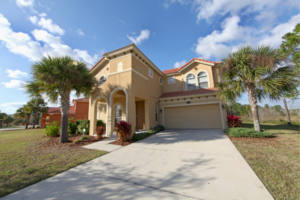The beauty of Florida’s coastline and the allure of its tropical climate are undeniable. However, residing in the Sunshine State comes with its fair share of challenges, particularly during hurricane season. When nature unleashes its fury in the form of powerful storms and hurricanes, homeowners need to take every precaution to protect their properties. One of the most crucial investments you can make is in impact-resistant roofing materials. In this comprehensive guide, we’ll explore the benefits of impact-resistant roofing and why upgrading to such roofing systems is your best defense against hurricane damage.
Understanding the Threat
Before we delve into the advantages of impact-resistant roofing, it’s essential to grasp the threat that hurricanes pose to residential roofs. Florida’s geographical location makes it vulnerable to hurricanes and tropical storms, with strong winds, torrential rains, and flying debris being the norm during hurricane season. These elements can wreak havoc on traditional roofing materials, leading to costly repairs and property damage.

The Power of Impact-Resistant Roofing
1. Superior Durability
Impact-resistant roofing materials are designed and tested to withstand the impact of debris flying at high speeds during hurricanes. These materials are engineered to be exceptionally durable, reducing the risk of damage caused by flying objects.
2. Enhanced Wind Resistance
The high winds associated with hurricanes can cause traditional roofing materials to lift or tear away from the structure. Impact-resistant roofing, on the other hand, is more likely to remain firmly in place, reducing the risk of water intrusion and structural damage.
3. Reduced Maintenance
Impact-resistant roofing materials require less maintenance compared to traditional options. They are less likely to crack, break, or deteriorate over time, resulting in fewer repair and replacement expenses.
4. Increased Lifespan
The longevity of impact-resistant roofing materials is a significant benefit. They often have a longer lifespan than traditional roofing materials, providing homeowners with years of reliable protection against the elements.
The Testing Process
Impact-resistant roofing materials are rigorously tested to ensure their ability to withstand hurricane-like conditions. Testing typically involves firing projectiles at the roofing materials to simulate the impact of flying debris. These materials are then subjected to high-speed wind tests to evaluate their wind resistance. Only materials that pass these tests receive the designation of “impact-resistant.”
Financial Savings
While the initial cost of impact-resistant roofing may be higher than traditional roofing materials, the long-term financial savings are substantial. Homeowners can enjoy reduced insurance premiums due to the added protection these roofs provide. Additionally, the decreased need for repairs and replacements over the years results in significant cost savings.
Eco-Friendly Roofing
Many impact-resistant roofing materials are environmentally friendly. They are often made from recycled materials and can be recycled at the end of their lifespan. This sustainability factor adds to their appeal for eco-conscious homeowners.
Choosing the Right Impact-Resistant Roofing
When considering an upgrade to impact-resistant roofing, it’s essential to choose the right materials for your specific needs. Some popular choices include:
1. Impact-Resistant Shingles
Impact-resistant asphalt shingles are designed to withstand heavy impact, making them a durable and cost-effective choice for homeowners.
2. Metal Roofing
Metal roofing is known for its durability and longevity. Impact-resistant metal roofing can withstand severe weather conditions, including hurricanes.
3. Clay or Concrete Tiles
Clay or concrete tiles are sturdy and can provide excellent protection against high winds and flying debris when properly installed.
4. Composite Roofing Materials
Composite roofing materials are a versatile option, combining the aesthetics of traditional materials with enhanced durability and impact resistance.
Installation Matters
While choosing impact-resistant roofing materials is essential, proper installation is equally critical. Hiring a qualified roofing contractor with experience in installing impact-resistant roofs ensures that your investment provides the protection it was designed for.
Conclusion
In hurricane-prone regions like Florida, investing in impact-resistant roofing is not a luxury; it’s a necessity. The superior durability, wind resistance, and financial savings associated with impact-resistant roofing make it the best defense against hurricane damage. As hurricane season approaches, consider upgrading your roof to impact-resistant materials to protect your home and loved ones from the unpredictable forces of nature. With impact-resistant roofing, you can face the storms with confidence, knowing that your home is well-prepared for whatever Mother Nature may bring.

